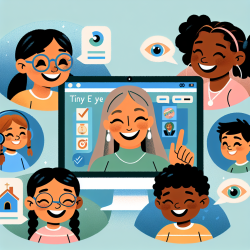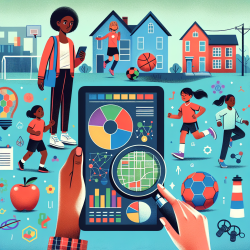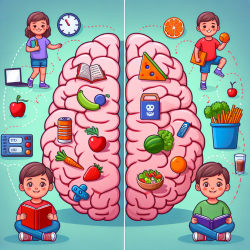In the digital age, traditional methods of therapy are evolving to incorporate technology, offering new avenues for treatment. One such innovation is the use of electronic diaries (e-diaries) among adolescents with depressive symptoms. The research article "How Do Adolescents Use Electronic Diaries? A Mixed-Methods Study Among Adolescents With Depressive Symptoms" provides valuable insights that can help practitioners enhance their therapeutic approaches. This blog will explore the key findings of the study and offer practical tips for integrating e-diaries into adolescent therapy.
Understanding the Research
The study, conducted at two university hospitals in Finland, involved 89 adolescents aged 15-17 who were referred to outpatient psychiatric clinics due to depressive symptoms. Participants were instructed to use an e-diary at least once a week to document their thoughts, feelings, and moods. The study employed a mixed-methods approach, combining quantitative data on e-diary usage with qualitative content analysis of the diary entries.
Key Findings
- Usage Rates: 53% of the adolescents used the e-diary, with most logging in during the first week. However, only about one-third continued to use it weekly as suggested.
- Content: The three most common topics in the e-diaries were mental health problems, social interactions, and personal development.
- Benefits: Adolescents found e-diaries helpful for reflecting on their thoughts and feelings, which supported their mental health and coping strategies.
Implementing E-Diaries in Practice
Based on the research findings, here are some practical tips for practitioners looking to incorporate e-diaries into their therapeutic work with adolescents:
1. Encourage Regular Use
Given that only a third of participants used the e-diary weekly, it is essential to encourage regular use. Setting reminders and providing positive reinforcement can help adolescents develop a consistent habit of diary writing.
2. Provide Guidance on Content
While the study allowed adolescents to write freely, providing them with specific themes or prompts can help guide their reflections. Themes such as "well-being," "family," and "personal goals" can be particularly beneficial.
3. Monitor and Respond
Regularly reviewing the e-diary entries allows practitioners to monitor the adolescents' mental health and provide timely feedback. This can also help identify any severe concerns, such as suicidal ideation, that require immediate attention.
4. Foster a Safe Environment
Ensure that adolescents feel safe and secure when using e-diaries. Emphasize the confidentiality of their entries and the supportive nature of this tool in their therapeutic journey.
5. Address Gender Differences
The study found that girls were more likely to use e-diaries than boys. To engage boys, consider integrating more interactive elements such as gamification or action-oriented prompts.
Encouraging Further Research
While this study provides valuable insights, further research is needed to explore the long-term benefits of e-diaries and their effectiveness across diverse populations. Practitioners are encouraged to stay updated with ongoing research and consider participating in studies to contribute to the growing body of knowledge in this field.
To read the original research paper, please follow this link: How Do Adolescents Use Electronic Diaries? A Mixed-Methods Study Among Adolescents With Depressive Symptoms.










